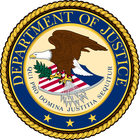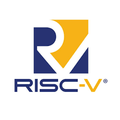There’s been a lot of activity in diverse parts of the standards and open source software development world of late. Here’s a selection of items you may have missed that I think might be of greatest interest.
 When you incorporate open source (OS) code into larger programs, it is risky to assume that the official license for the project is the only license you need to comply with. This is true even if the only OS code …
When you incorporate open source (OS) code into larger programs, it is risky to assume that the official license for the project is the only license you need to comply with. This is true even if the only OS code …
 If you participate in standards development organizations, open source foundations, trade associations, or the like (Organizations), you already know that you’re required to comply with antitrust laws. The risks of noncompliance are not theoretical – violations can result in severe …
If you participate in standards development organizations, open source foundations, trade associations, or the like (Organizations), you already know that you’re required to comply with antitrust laws. The risks of noncompliance are not theoretical – violations can result in severe …
 Not all free and open source (OS) software licenses have been created to achieve the same goals, and failure to understand the differences can have dire consequences. Some OS licenses are business-friendly in that they allow the code to be …
Not all free and open source (OS) software licenses have been created to achieve the same goals, and failure to understand the differences can have dire consequences. Some OS licenses are business-friendly in that they allow the code to be …
In its simplest form, FOSS development requires almost no traditional economic, physical or management support. All that is needed is a place to host code in a manner that allows multiple developers to collaborate on its further development. As FOSS has become more commercially valuable and widely incorporated into vendor and customer strategic plans, however, additional layers of services and structures have evolved to allow FOSS development to become more efficient and robust and the user experience even more productive. These include training, a growing certification testing network, a variety of tools to assist in legal compliance matters, and a network of hosting entities providing a wide range of supporting services and frameworks.

It would not be an exaggeration to say that the magic of open source software (OSS) is based as much on legal innovation as it is on collaboration. Indeed, the essential innovation that launched free and open source software was …
Everybody uses open source software (OSS) today. Millions of people contribute to the code itself. Indeed, a substantial percentage of the users and creators of OSS today are young enough to have never known a world that didn't rely on OSS. In other words, it's very easy to take this remarkable product of open collaboration for granted.
 For over thirty years U.S. companies have enjoyed a home court advantage in developing information and communications technology (ICT) standards. Specifically, the overwhelming majority of the more than five hundred consortia founded over the last thirty-five years to develop ICT …
For over thirty years U.S. companies have enjoyed a home court advantage in developing information and communications technology (ICT) standards. Specifically, the overwhelming majority of the more than five hundred consortia founded over the last thirty-five years to develop ICT …
This post was written by Lee Gesmer. It describes a case involving the scope of the most fundamental commitment that makes standards development and adoption possible. You can read more posts by Lee at https://masslawblog.com/
Antitrust law in the United States is regulated by both the Antitrust Division of the Department of Justice (DOJ) and the Federal Trade Commission (FTC). Usually, these two agencies are able to reach a common understanding on antitrust policy and enforcement. Infrequently, they find themselves in disagreement.
Currently, the proper antitrust treatment of standard-essential patents and patent-holder commitments to make these patents available on “fair, reasonable and non-discriminatory terms” is such an occasion. The disagreement has come to a head in FTC v. Qualcomm, now on appeal before the Ninth Circuit.
Ninety-odd days ago, the US Bureau of Industry and Security (BIS) added Huawei and 68 of its affiliates to its “Entity List.” BIS added another 46 Huawei affiliates last week (collectively, “Huawei”), thereby making it illegal for US individuals and entities to disclose certain technology and software to Huawei and such blacklisted affiliates without a license. At the same time, it tempered the blow by issuing a Temporary General License that, among other things, allowed US entities to continue to participate with Huawei to develop 5G standards.
For all other standards, Huawei’s continued participating would be legal only to the extent a given standard setting organization (SSO) either applied for, and received, a license from the BIS, or could credibly analogize its processes to an exception recognized under existing Export Administration Regulations (EAR). The closest exceptions are disclosures at public conferences and in connection with coauthoring journal articles. Ever since, standards setting organizations (SSOs) counting Huawei as a member have been scrambling, trying to figure what they can and cannot allow Huawei to do.
On Monday of this week, three things happened that provided some answers. But almost all the answers were bad.
 When you incorporate open source (OS) code into larger programs, it is risky to assume that the official license for the project is the only license you need to comply with. This is true even if the only OS code …
When you incorporate open source (OS) code into larger programs, it is risky to assume that the official license for the project is the only license you need to comply with. This is true even if the only OS code … If you participate in standards development organizations, open source foundations, trade associations, or the like (Organizations), you already know that you’re required to comply with antitrust laws. The risks of noncompliance are not theoretical – violations can result in severe …
If you participate in standards development organizations, open source foundations, trade associations, or the like (Organizations), you already know that you’re required to comply with antitrust laws. The risks of noncompliance are not theoretical – violations can result in severe … Not all free and open source (OS) software licenses have been created to achieve the same goals, and failure to understand the differences can have dire consequences. Some OS licenses are business-friendly in that they allow the code to be …
Not all free and open source (OS) software licenses have been created to achieve the same goals, and failure to understand the differences can have dire consequences. Some OS licenses are business-friendly in that they allow the code to be …
 For over thirty years U.S. companies have enjoyed a home court advantage in developing information and communications technology (ICT) standards. Specifically, the overwhelming majority of the more than five hundred consortia founded over the last thirty-five years to develop ICT …
For over thirty years U.S. companies have enjoyed a home court advantage in developing information and communications technology (ICT) standards. Specifically, the overwhelming majority of the more than five hundred consortia founded over the last thirty-five years to develop ICT …